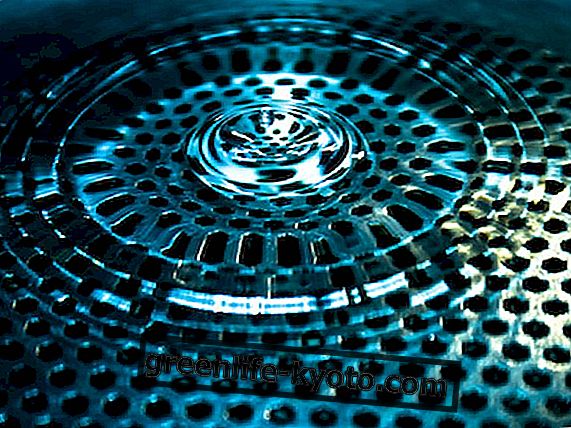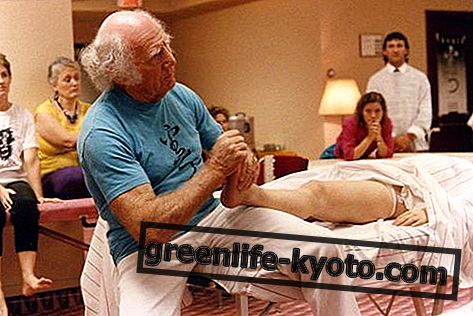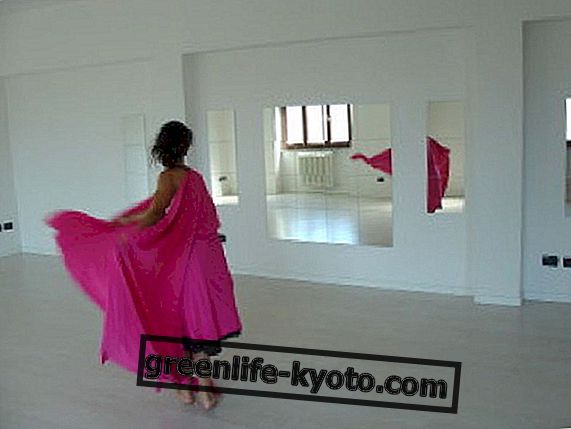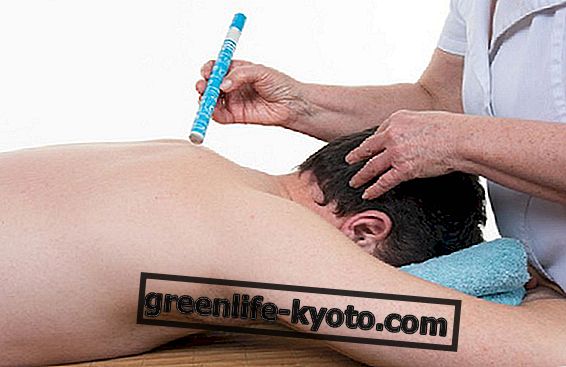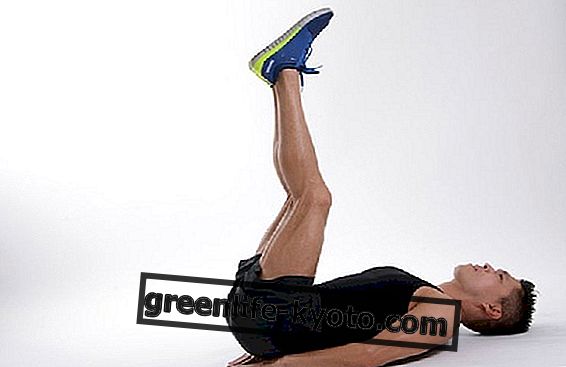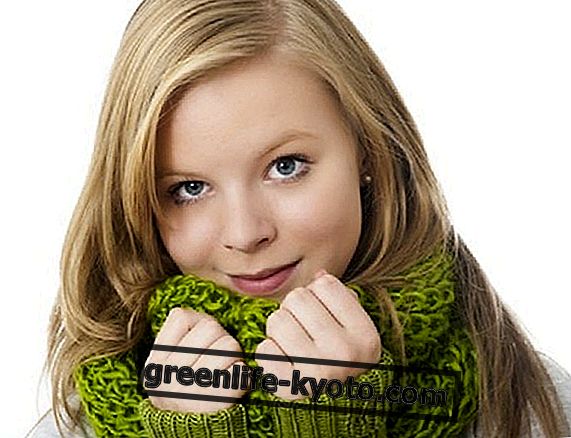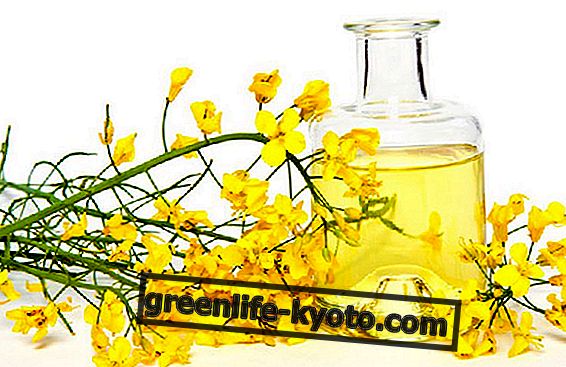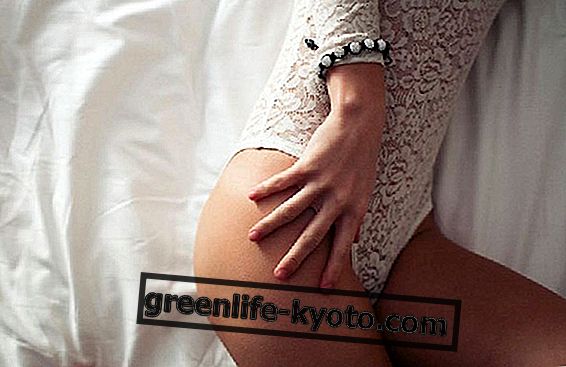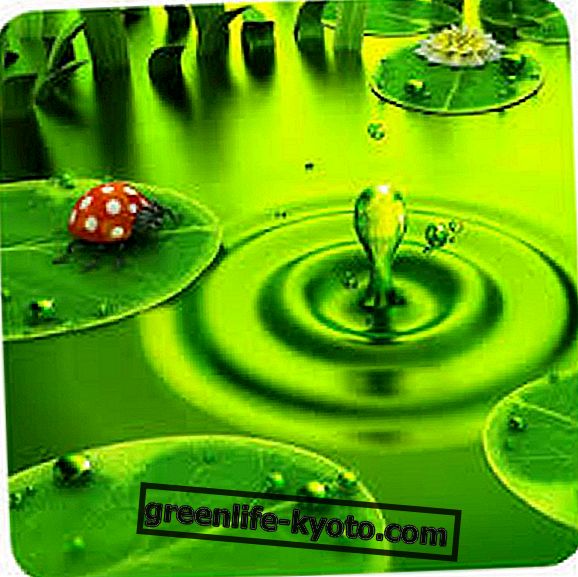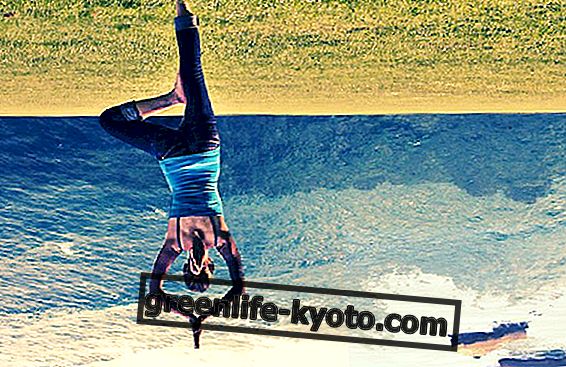Anxiety is a state of widespread and persistent tension that never abandons those who suffer from it. The emotional state associated with an alert condition towards something external is usually characterized by an excess of concern, an exaggerated reaction with respect to the real conditions. Let's find out how to cure it.

Anxiety can be due to an organic disease and is different in this case from situational anxiety. Chronic anxiety instead is still treated with long-term drug therapy with hypnotic-sedative drugs, possibly associated with psycho-therapy.
Recent studies also show that prolonged states of stress and anxiety that are not properly managed erode our telomeres, favoring aging.
Symptoms of anxiety
According to the data of the WHO (World Health Organization), the number of people who live with an important frequency of anxiety states is around 400 million.
Among the symptoms of the psychophysical malaise caused by anxiety we find manifestations that can invest one or more organs simultaneously and give rise to intestinal disorders, tachycardia, extrasystoles, tremors, auricular buzzing, feeling of suffocation.
Stomach cramps and weakness are also other conditions that can accompany anxiety states.
Causes
Understanding the underlying causes of a disorder related to the mind is not always easy.
Anxiety can certainly arise from external motivations such as severe stress, but many times there does not seem to be a trigger. In general, however, it is possible to identify three major types of factors that affect people, leading to more or less serious states of anxiety:
- intense lifestyles (frenetic work rhythms, abuse of psychotropic substances, etc.).
- Hereditary genetic factors.
- More or less natural imbalances of chemicals present in the brain (noradrenaline and serotonin).
Diagnosis
It often happens that anxiety generates irrational fears, attacks and uncontrollable states of phobia that have different names depending on what turns into the cause of anxiety (from the classic agoraphobia, the fear of open spaces, to arachnophobia, the fear of spiders, up to amatophobia, fear of dust, or misophobia, fear of being "contaminated" by contact with foreign bodies, more often by human contact).
DAP (panic disorder) is very widespread, while GAD (generalized anxiety disorder) is the condition of persistent anxiety that generates motor restlessness, agitation, and sleep disorders. Anxiety also characterizes obsessive-compulsive disorder and post-traumatic stress disorder.
ANXIETIC CARE
Power in the event of anxiety
In anxiety, useful foods are those able to rebalance the nervous system. There are four important amino acids for this disorder:
- Histidine: promotes a calming and relaxing effect on the mental level
- Tryptophan: precursor of serotonin. Anxious people often have a lack of serotonin in their blood, tryptophan together with B vitamins and vitamin C becomes important in maintaining mental and emotional balance
- Glycine: acts at the level of the spinal cord controlling the motor alteration to which anxious people go
- Taurine: contained in the central nervous system
Histidine, Tryptophan and Glycine are contained in proteins of animal and vegetable origin, with a higher percentage in soy.
Taurine is an amino acid that the body is able to synthesize by itself. Equally important are the B vitamins contained in whole grains and brewer's yeast, which contain chromium which is also useful in fighting anxiety.

Vegetables such as lettuce, green beans and courgettes help to calm the central nervous system . The following nutritional associations can be proposed to calm anxiety and irritability:
- Boiled potatoes: cooked in a casserole and covered with water to which oil, salt, chopped parsley and garlic will be added, they have potassium, an essential mineral for the good functioning of nerve cells
- Marinated courgettes: sliced and fried in extra virgin olive oil, drained and seasoned with chopped garlic and parsley
- Pesto pasta: prepared with fresh basil, a tablespoon of pine nuts and a half clove of garlic
- Risotto with lettuce: in a saucepan, sauté lettuce cut into strips with a clove of crushed garlic in extra virgin olive oil. After seven minutes it is lengthened with hot water and when it begins to boil, the rice is added
Instead , coffee, tea and Coca-Cola are to be reduced .
Herbal remedies for anxiety
For the treatment of anxiety in phytotherapy we use herbal teas, mother tinctures or dry extracts of plants with sedative action by intervening on the system affected by the somatization of this disorder.
If in fact the state of anxiety manifests itself on the muscular apparatus, chamomile and lemon balm will be very useful, calming irritability and nervous tension, through the relaxation of the muscles. Therefore, they are indicated for their antispasmodic activity in gastrointestinal disorders of neurovegetative origin, such as spastic colitis, irritable bowel, gastritis and meteorism.
If anxiety is accompanied by tachycardia, palpitations, changes in heart rate, hypertension, linden and hawthorn, performing a hypotensive and calming action on the cardiovascular system, are used to combat insomnia, arrhythmias, nervousness and headaches, due to anxious states and stress. Also in the forms of the gemmoderivati, respectively Tilia tomentosa and Crataegus oxyacantha, they are effective remedies to relax very nervous people, in which they reduce emotion, in states of agitation, anxiety, and in case of insomnia of elderly and children.
The passionflower ( Passiflora incarnata ) the aerial parts carry out a sedative action of the central nervous system with tranquilizing and anxiolytic effects. The type of activity exercised by this plant is similar to synthetic sedatives, as it has receptors common to benzodiozepines, but without producing the collateral narcotic effects, which these drugs can give.
Learn more about herbal remedies for anxiety
Bach flowers in case of anxiety
The flower therapy intervenes on the different forms of anxiety states, derived from difficult transient moments that the individual goes through in the course of his life; in other cases anxiety is linked to negative character attitudes of his personality. In times of acute anxiety Rescue Remedy immediately attenuates major discomforts.
- Agrimony : suitable for anxiety caused by an inner torment that we hide from others. Suffers those who mask problems to others by resorting to a façade of cheerfulness that avoids conflicts and discussions. The flower helps to face problems, limiting the tendency to hide them for fear of not being accepted, giving serenity and optimism in facing them.
- Walnut : for the anxiety that results from a stressful event or a change of life. The remedy helps in times when breaking old bonds, associations and lifestyles can cause anxiety, instability, confusion and uncertainty about the decisions taken. The remedy gives constancy, decision and determination, adaptability, without regrets.
- White Chestnut: is the remedy for anxiety caused by circular thoughts, of which we find no solution. It suffers those who for a period find themselves suffering their own thoughts, without managing to dominate them, brooding relentlessly, over past traumas. The flower helps keep obsessive thoughts at bay, promoting relaxation and mental peace.
- Aspen : the remedy for anxiety and apprehension caused by undefined fears. These individuals live with a sense of constant threat, deadly and unjustified omens, awaiting an imminent catastrophe, an impending ruin. The remedy instills courage, helping to overcome anxiety and fear.
- Elm : the remedy for anxiety caused by excessive responsibility. Those who do not ever turn back or, faced with an emergency, do not let themselves be frightened by fatigue suffer, but end up asking too much of themselves. The flower helps to manage stress and recharge energetically.
- Impatiens: the remedy for anticipation anxiety. Those who, for example, easily lose their nerve at traffic lights, in front of queues, because they are afraid of wasting their time, live with this kind of disorder. The subject that falls into this typology often suffers from insomnia at night, mentally anticipating the next day's commitments. The flower helps to relieve spasmodic tension and teaches us to accept the natural flow of life and its times.
- Scleranthus: for the anxiety caused by the indecision between two possibilities. The person suffering from it fluctuates from one extreme to the other, and in the grip of uncertainty, is unsure about which decision to take between two alternatives or two possibilities. The flower helps to reset the scale of values and priorities with a view to arriving at a decision.
- Red chestnut: for the anxiety that something bad can happen to loved ones. This flower is useful for those who consider life a threat and, forgetting themselves and their needs, fear and worry only about the health of others, with loss of balance and serenity. The flower allows you to control anxiety and manage the overprotective that generates apprehension more rationally.
Traditional Chinese Medicine
In traditional Chinese medicine, each organ of the body has a psychic content, which means that we also store mental energies within the body. Anxiety arises from energy imbalances, intoxications and poorly functioning organs that damage mental energy: for example, an intoxicated liver diminishes the strength of decisions.
In addition to the Liver meridians, it is useful to treat those of the Heart and Spleen. Acupuncture mobilizes the qi, the energy of the Liver, and reassures the shen, through work on these points:
- Shen men (on the crook of the wrist), which tones and regulates cardial qi ;
- Xing jian (between the big toe and the second toe), which tones and regulates the Liver, and cools the Blood;
- Feng long (between the lower edge of the kneecap and the vertex of the external malleolus), which dissolves humidity, mobilizes the qi of the Spleen and Stomach, calms the shen and favors the descent of the yang .
Acupressure, which is based on the principles of traditional Chinese medicine, can also be a good remedy for anxiety states.
Aromatherapy in the event of anxiety
In the treatment of anxiety in general the essential oil of melissa is recommended: 2/3 drops of essential oil 3 times a day dissolved in a spoon of honey.
Lavender oil, widely used in aromatherapy as it is very versatile, relaxes the body and is used in the diffuser, mixed with water or other vegetable oils, or in the bathtub (from 5 to 10 drops).
Homeopathy
Homeopathic medicines that treat anxiety are divided into two categories: somatic medicines and deep-acting medicines.
The symptomatic treatment involves taking Argentum nitricum 15 CH (5 granules, 1-3 times a day), which mitigates the states of agitation, and Gelsenium 9 CH (5 granules, 1-3 times a day), also recommended for eve of an important test, an intervention or an examination. In basic treatments, Arsenicum album 15 CH is used (5 granules, 1-3 times a day), which treats constant anxiety states, and in Lachesis 15 CH (5 granules, once a day), specific for sadness, disorders of sleep, melancholy and anxiety in menopause.
Exercises
It is easy for the anxious subject to reproduce more or less the same motor patterns and to remain "caged" inside. In this case the Feldenkrais method is excellent so that the body returns to experience movement in an easy and organized way.
Excellent results are also obtained with dance-therapy and bio-energetics.
In general, the advice is to listen to yourself in the movement .
Faced with an episode of anxiety that manifests itself with tremor, tachycardia and a feeling of suffocation, it is of great help to massage some points of one's body indicated in traditional Chinese medicine.
We suggest two techniques : massage the center of the palm of your left hand with the thumb of your right hand in a circular motion for about two minutes. Repeat the massage on the right. Another technique is to press with the forefinger, for five minutes, the point between the two eyebrows: exert a little force in the pressure, the benefit will be immediate.
In case of anxiety it is very helpful to massage some points of your body indicated in traditional Chinese medicine.
We suggest two techniques : massage the center of the palm of your left hand with the thumb of your right hand in a circular motion for about two minutes. Repeat the massage on the right. Another technique is to press with the forefinger, for five minutes, the point between the two eyebrows: exert a little force in the pressure, the benefit will be immediate.
If instead you want to deal with the disorder in a more systematic way, we recommend oriental practices such as integral yoga or Chinese gentle gymnastics, sweet gymnastics, tai chi chuan and qi gong .
Foot reflexology is also indicated for anxiety. The reflexology foot massage, in fact, is also an excellent tool to relax or to help oneself during an episode of insomnia.
Those who suffer from anxiety find it quite difficult to get into the perspective of quiet and meditation (in movement or through positions maintained through the breath ) of these disciplines, which however in the long term are of exceptional help to regain contact with the interior, through exploration and overcoming of body blocks.
Much depends on the teacher's empathic ability and the practitioner's willingness to do the emptiness inside, even to open a gap in a first phase.
